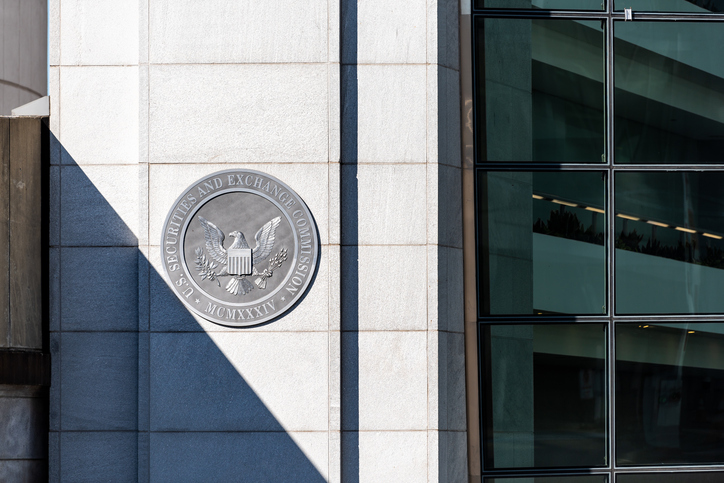Updated
May 15, 2025

In addition to establishing a whistleblower award program for the U.S. Securities and Exchange Commission (SEC), the 2010 Dodd-Frank Act greatly expanded anti-retaliation protections for individuals blowing the whistle on securities law violations.
Under the Dodd-Frank Act and SEC rules, an employer may not discharge, demote, suspend, harass, or in any way discriminate against an employee who reported potential securities law violations to the SEC. The Dodd-Frank Act also prohibits employers from taking any action to impede an individual from contacting the SEC about possible securities law violations.
In order to protect whistleblowers from retaliation, the SEC also offers strong confidentiality protections to individuals. The agency does not reveal identifying information about whistleblowers in response to Freedom of Information Act requests or publicly released documents. Whistleblowers may even make a disclosure anonymously if they file with the assistance of an SEC whistleblower attorney.
The SEC may take legal action against employers who retaliate against whistleblowers. Individuals who have faced retaliation may also sue their employer in federal court to gain double back pay (with interest), reinstatement, and attorneys’ fees.
Notably, a 2018 Supreme Court ruling and a 2020 rule amendment by the SEC narrowed the scope of anti-retaliation protections to apply only to individuals who made a disclosure to the SEC “in writing” before being subject to retaliation.
Key Takeaways
- Under the Dodd-Frank Act, an employer may not discharge, demote, suspend, harass, or in any way discriminate against an employee who reported potential securities law violations to the SEC
- In order to qualify for Dodd-Frank Act anti-retaliation protections, a whistleblower must have made a disclosure to the SEC “in writing” before facing retaliation
- A whistleblower who has experienced retaliation may file suit against their employer seeking double back pay (with interest), reinstatement, and attorneys’ fees
- The SEC also pursues enforcement actions against companies who retaliate against whistleblowers or interfere with employees’ ability to blow the whistle to the SEC
- One of the SEC’s most powerful anti-retaliation protections is confidentiality. An individual can even blow the whistle anonymously with the aid of an SEC whistleblower attorney
Forms of Retaliation
Retaliation against whistleblowers can take many forms. Section 992 of the Dodd-Frank Act specifically states that employers may not “discharge, demote, suspend, threaten, harass, directly or indirectly, or in any other manner discriminate against a whistleblower in the terms and conditions of employment.”
While retaliation is often drastic and clear, such as termination or suspension, it can entail other subtler actions. For example, an employer may change a whistleblower’s job duties in retaliation for blowing the whistle or exclude a whistleblower from certain meetings. Retaliation can also be a negative performance review or passed up for a job promotion or raise. Other forms of harassment, ostracization, and mocking can also be retaliation.
Furthermore, SEC Rule 21F-17(a) prohibits employers from “imped[ing] an individual from communicating directly with the Commission staff about a possible securities law violation.” This rule includes the use of restrictive nondisclosure or confidentiality agreements.
Qualifying for Anti-Retaliation Protections
To be protected from whistleblower retaliation under the Dodd-Frank Act, a whistleblower must have made their disclosure to the SEC “in writing” before experiencing retaliation. Meaning whistleblowers who blow the whistle internally are not protected unless they also formally file a whistleblower disclosure with the SEC. Consulting an experienced SEC whistleblower attorney before filing a Form TCR with the SEC is the best way for an individual to ensure that they are fully protected.
A 2018 Supreme Court ruling in Digital Realty Trust, Inc. v. Somers established this narrow scope of who qualifies for whistleblower protections. A 2020 amendment to the SEC Whistleblower Program rules conformed the agency’s rules to the Supreme Court decision.
Filing an Anti-Retaliation Suit
Employees who face retaliation for blowing the whistle may file a lawsuit against their employer in federal court. The Dodd-Frank Act established a lengthy statute of limitations to protect whistleblowers better. Individuals have six (6) years from the date of the retaliatory act to file a suit.
When a whistleblower is successful in court they may be entitled to a wide range of relief. This relief may include reinstatement with the same seniority status, two times the amount of back pay with interest, compensation for litigation costs, expert witness fees, and reasonable attorneys’ fees.
Actions Taken by the SEC Against Retaliatory Companies
In addition to a whistleblower’s private right of action, the SEC may pursue enforcement actions against employers who retaliate against whistleblowers. The agency has sanctioned several companies over the past decade for retaliating against whistleblowers and impeding individuals’ ability to blow the whistle to the SEC.
In 2014 the SEC brought charges against a company for whistleblower retaliation for the first time. Paradigm Capital Management and its own Candace Weir agreed to pay $2.2 million to settle the charges. The SEC alleged that Paradigm retaliated against a whistleblower by removing them as a head trader, changing their job function, stripping them of supervisory responsibilities, and otherwise marginalizing them.
In another case, the SEC imposed a $500,000 penalty on casino-gaming company International Game Technology (IGT) for retaliating against a whistleblower. According to the SEC, IGT fired an employee who had several years of positive performance reviews after learning that the employee had blown the whistle to the SEC.
In 2022, the SEC charged Brink’s Company with impeding the ability of employees to blow the whistle to the SEC. The SEC alleged that Brinks used language in confidentiality and nondisclosure agreements that restricted whistleblowing.
Confidentiality
To protect whistleblowers from retaliation, the SEC also offers strong confidentiality protections to individuals who disclose securities violations. As described in SEC Rule 21F-7, “will not disclose information that could reasonably be expected to reveal the identity of a whistleblower.” This rule means that the SEC does disclose whistleblowers’ identities in response to Freedom of Information Act requests or published whistleblower award determinations. In some instances, however, the SEC is required to disclose certain information during administrative or court proceedings.
To better protect their identity, whistleblowers may blow the whistle anonymously to the SEC. The SEC requires a whistleblower to hire a whistleblower attorney to blow the whistle anonymously. By doing so, a whistleblower’s attorney may then file the whistleblower’s disclosure, in the form of a TCR, to the SEC. However, to claim a whistleblower award, a whistleblower must reveal their identity to the SEC.
Our Firm’s Cases

$125 Million in Awards
We have successfully represented a number of SEC whistleblowers, preserving their anonymity and securing sizable whistleblower rewards. In one case, we helped our client receive one of the ten largest whistleblower awards ever granted by the SEC.
Relevant FAQs
Latest News & Insights
Former SEC officials lead the firm’s new group, representing whistleblowers who report financial fraud and legal violations to the SEC, CFTC, DOJ, FinCEN, and the IRS.






